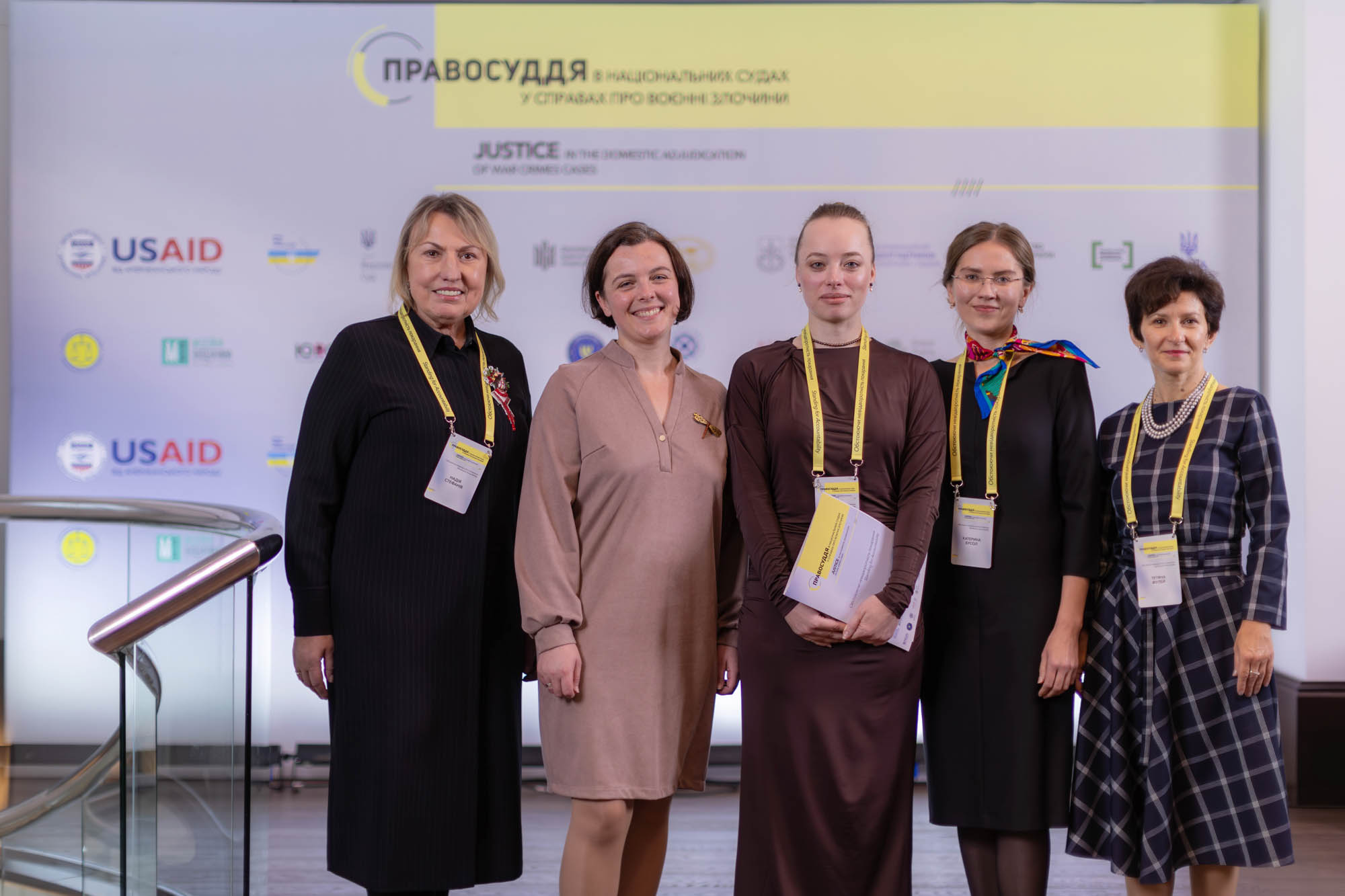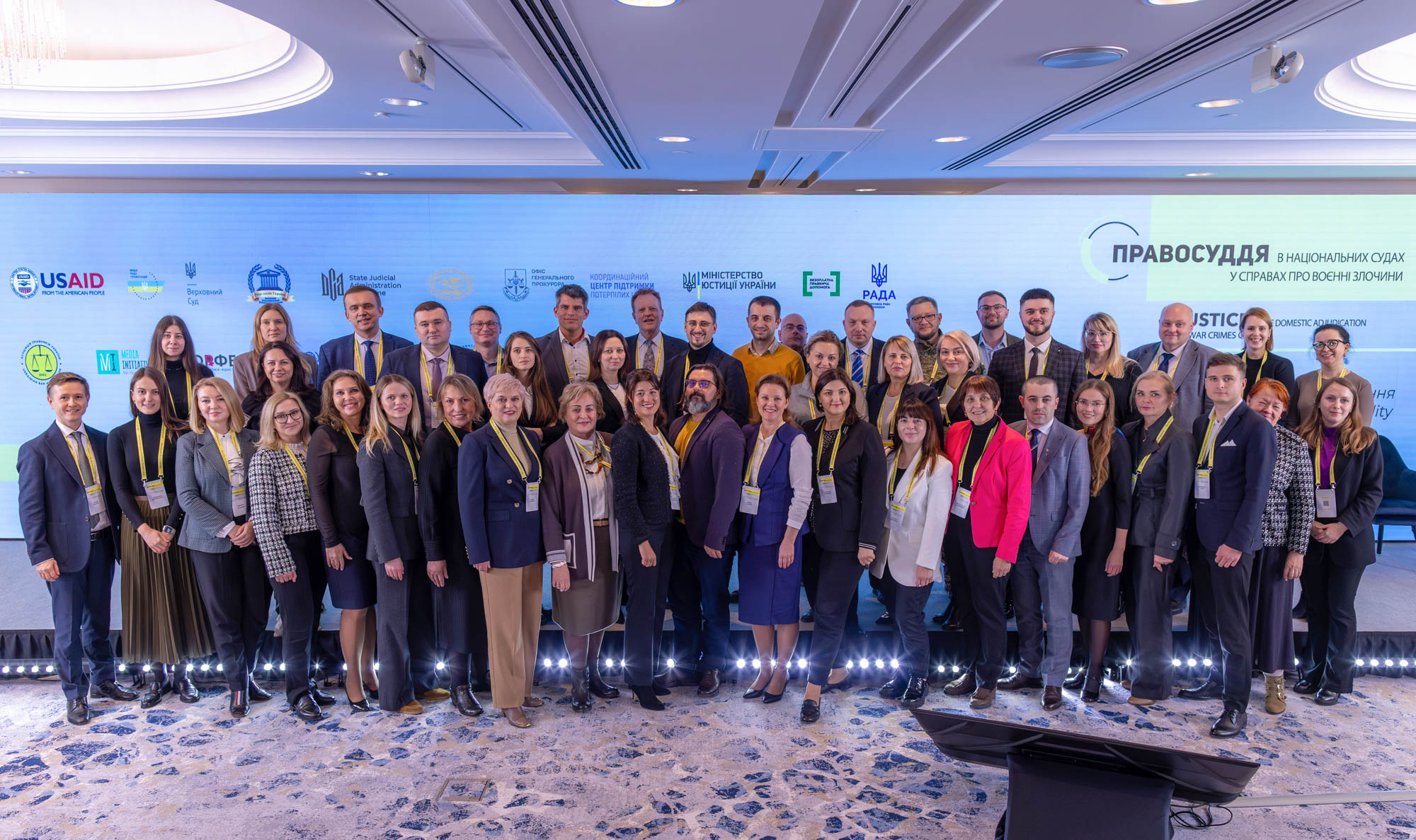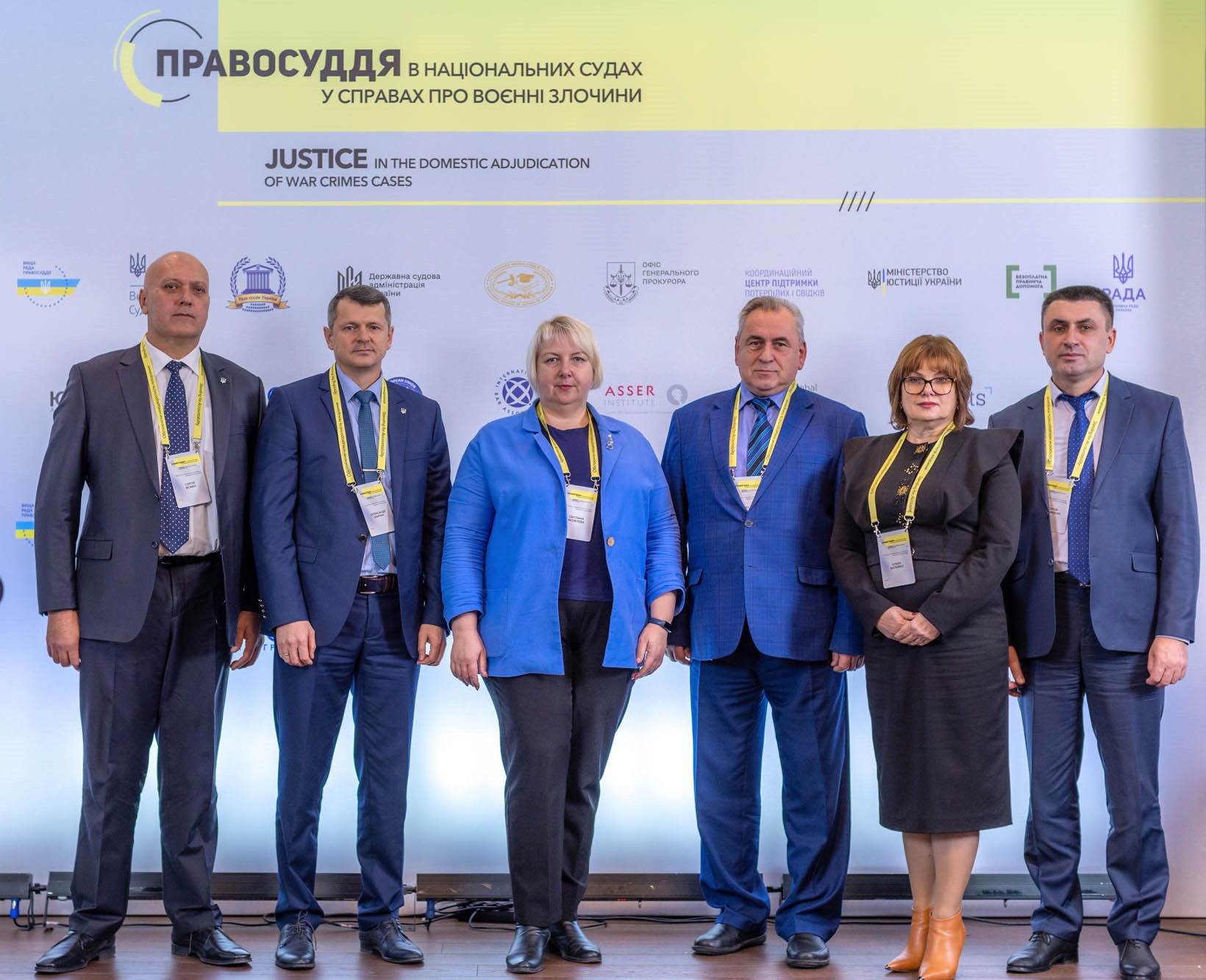Contact center of the Ukrainian Judiciary 044 207-35-46
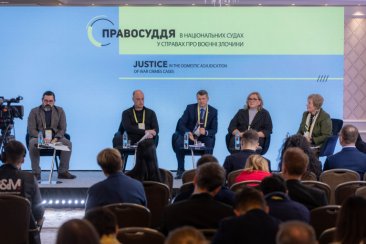
Under martial law, the judicial system managed to ensure the administration of justice and to create conditions for the protection of the lives and health of litigants, judges and court staff.
This is how the work of the courts in the frontline areas has been organised: they consider the cases of the courts whose jurisdiction has changed due to the temporary occupation of the areas where they are located. In the central and western parts of our country, the courts operate in slightly more favourable conditions, but it is impossible to say that they operate in complete security, as there are no completely safe places in Ukraine. The courts in the de-occupied areas have resumed their work. The staff there have experienced what it is like to have their premises completely destroyed, looted and their property lost. Now there are problems with the return of cases transferred to other courts.
This was stated by Oleksandr Marchuk, President of the Criminal Cassation Court of the Supreme Court, during a panel discussion on war crimes at the Second Annual Conference 'Justice in National Courts for International Crimes'.
He noted that as of today, the courts of first instance have considered more than 1,600 criminal proceedings for crimes against peace, human security and international law and order.
‘There are still some problematic issues. In particular, due to power outages, it is sometimes impossible to ensure technical recording of the process. There is also an acute shortage of personnel in the judiciary, which creates a risk of lack of access to justice for citizens. For example, there are more vacancies in the courts of appeal than there are working judges. In addition, there are not enough courtrooms. Judges equip their own offices as courtrooms, but face the lack of the necessary technical means to record trials,’ said Oleksandr Marchuk.
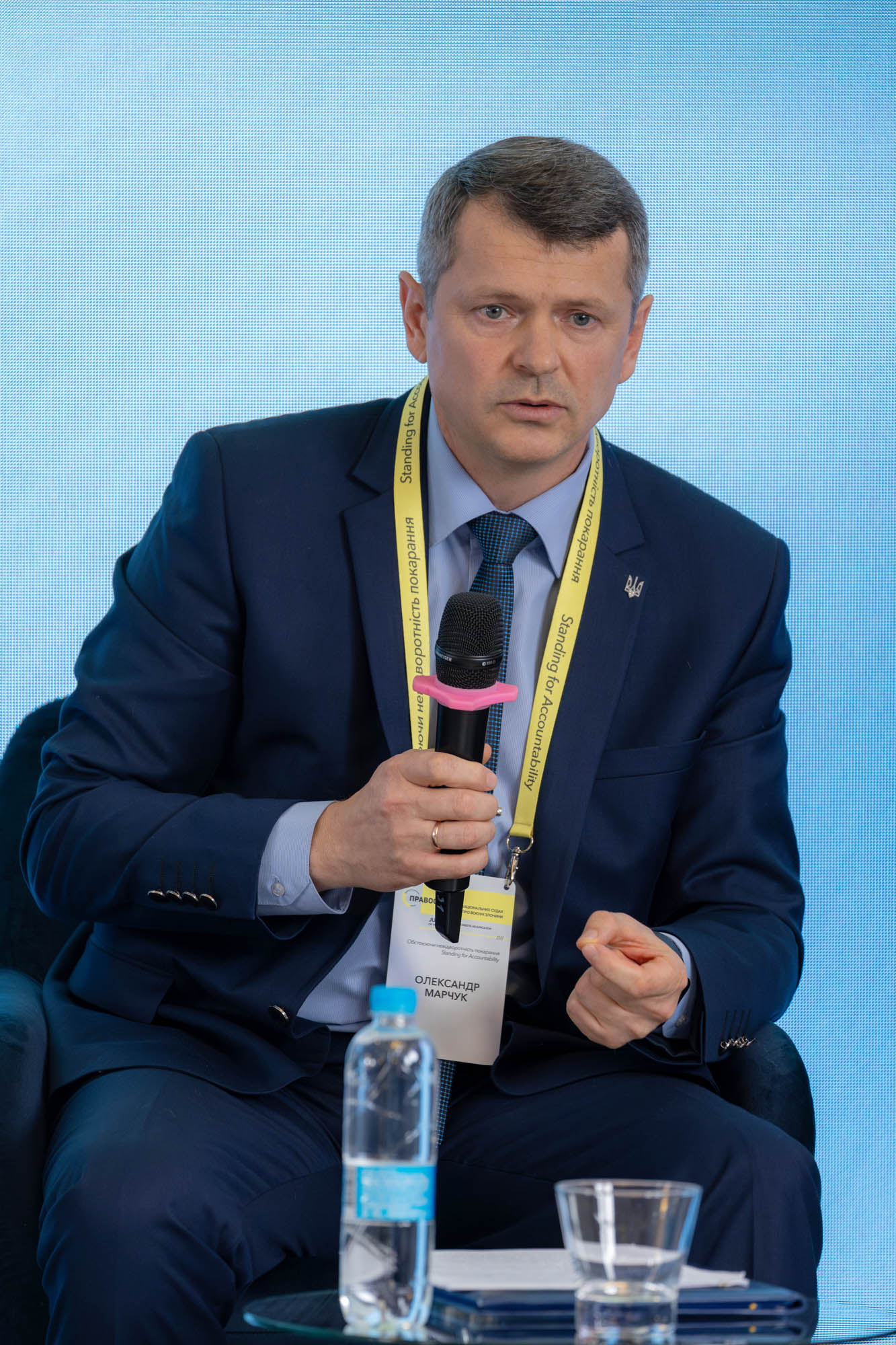
The President of the CrimCC of the Supreme Court noted the importance of adopting the implementation Law of Ukraine ‘On Amendments to the Criminal Code and the Criminal Procedure Code of Ukraine in connection with the ratification of the Rome Statute of the International Criminal Court and amendments thereto’, which is the final step in the process of ratification of the Rome Statute of the International Criminal Court.
The speaker also emphasised that the Supreme Court's case law on aggression and war crimes is currently being developed on an ongoing basis.
In most cases of this category, the in absentia procedure has been applied. Criminal proceedings for war crimes require the mandatory participation of a defence attorney and are considered in relation to perpetrators of war crimes whose whereabouts are usually unknown or who are located in the temporarily occupied territory of Ukraine or in the territory of the Russian Federation. Thus, the problems are the proper notification of such persons of court proceedings and the lack of need to improve the legislation on such a procedure.
Oleksandr Marchuk stressed that the judicial system of Ukraine is currently facing the challenge of ensuring the continuity of the judicial system in times of war, the unity of judicial practice, the continuation of the reforms launched and the provision of courts with the necessary staff.
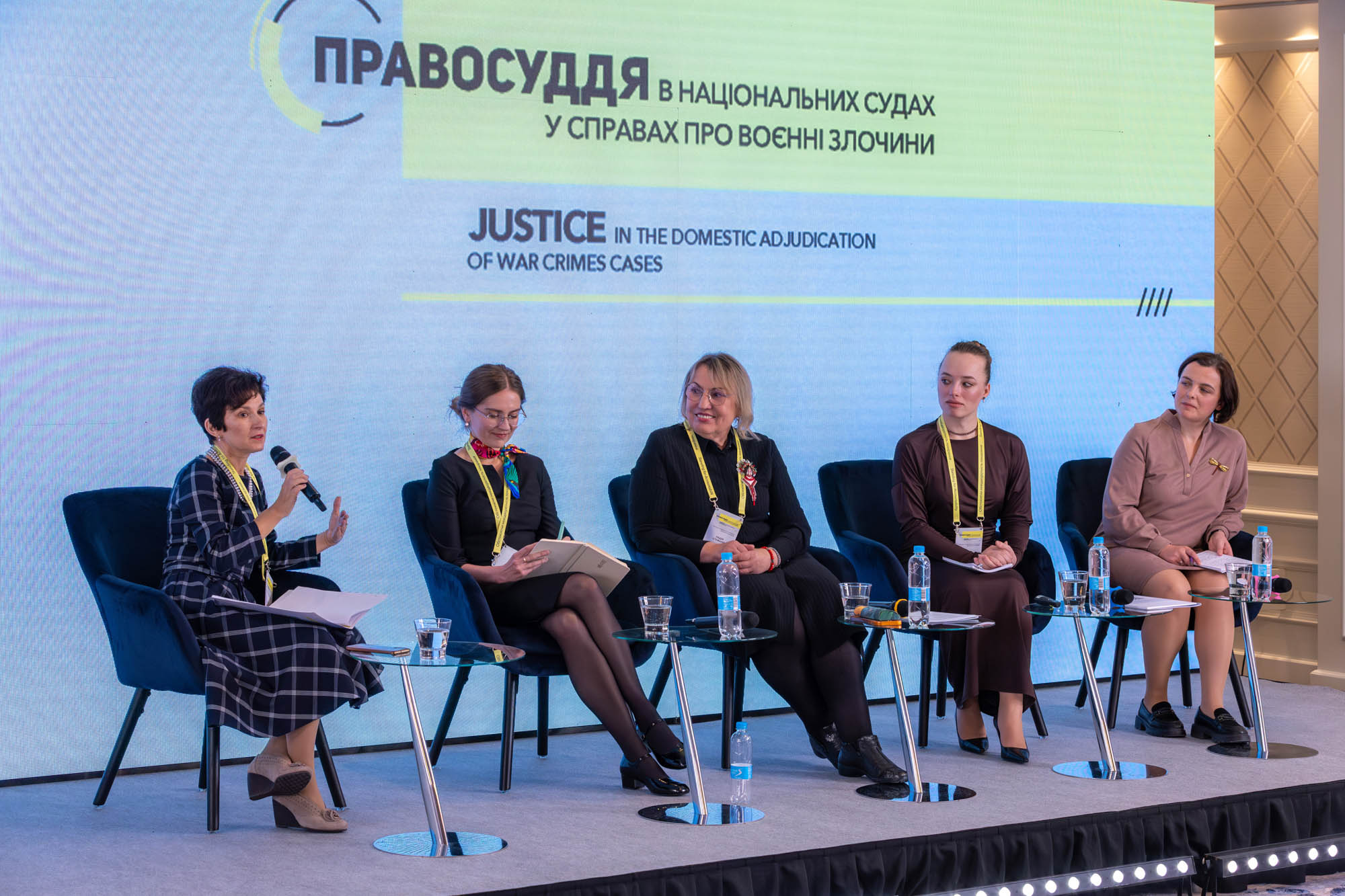
Nadiia Stefaniv, Judge of the Criminal Cassation Court of the Supreme Court, pointed to gender aspects in the context of war crimes trials. In her opinion, the court should not only adhere to international standards of justice, but also be gender sensitive. Gender sensitivity is of great importance for both court staff and judges, because when examining evidence and, in particular, conducting trials in the first, appellate and cassation instances, they communicate with participants in the process, most of all with victims and witnesses. Most of them are vulnerable individuals, and it is not only women, but also men who have suffered from the violence inherent in war crimes.
Nadiia Stefaniv emphasised that judges must understand what gender and gender sensitivity are. A judge in a trial must respect the equality of the parties during the trial, including gender equality. The attitude towards the victim or witness should be such that the person does not ‘close up’ in the trial, because then the judge will not be able to properly examine the testimony.
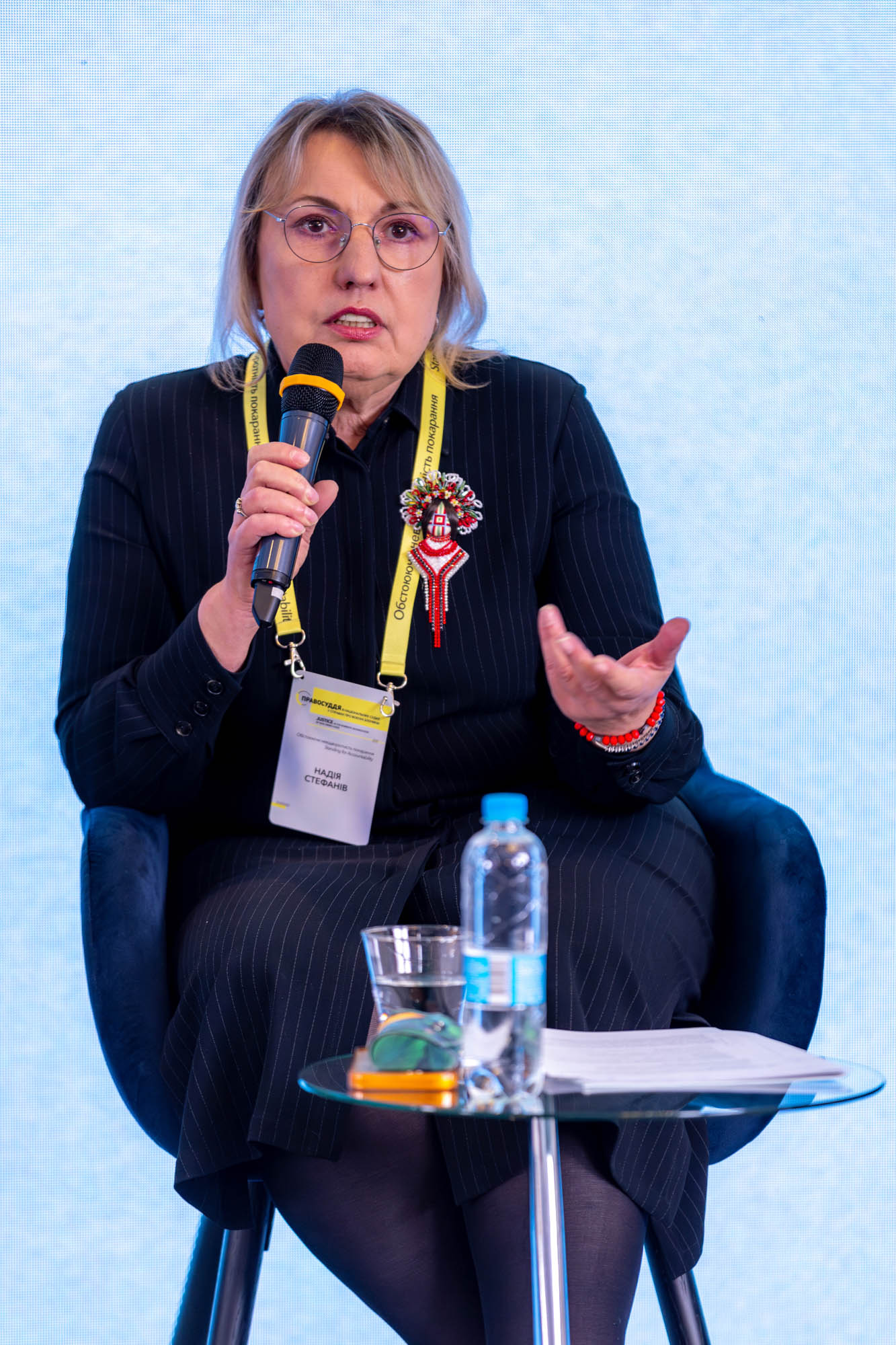
The questions asked by the parties are also important. Questions that would offend the person, such as excessive detail of violent acts, should not be asked, especially in open court. Care should be taken not to traumatise victims and witnesses, and therefore avoid sensitive questions that may make a person uncomfortable. In order to comply with the rules of equality, competitiveness and gender sensitivity, it is necessary to prepare a list of such questions in advance.
‘Respect for the parties, regardless of their gender or procedural status, is a component of a fair trial. Reasonableness and fairness are an integral part of our work, and the final court decision, which will then become public, should contain gender-sensitive language to help prevent re-victimisation,’ the speaker said.
The event was organised with the support of the USAID Justice for All Program.
Photo courtesy of the organisers.
